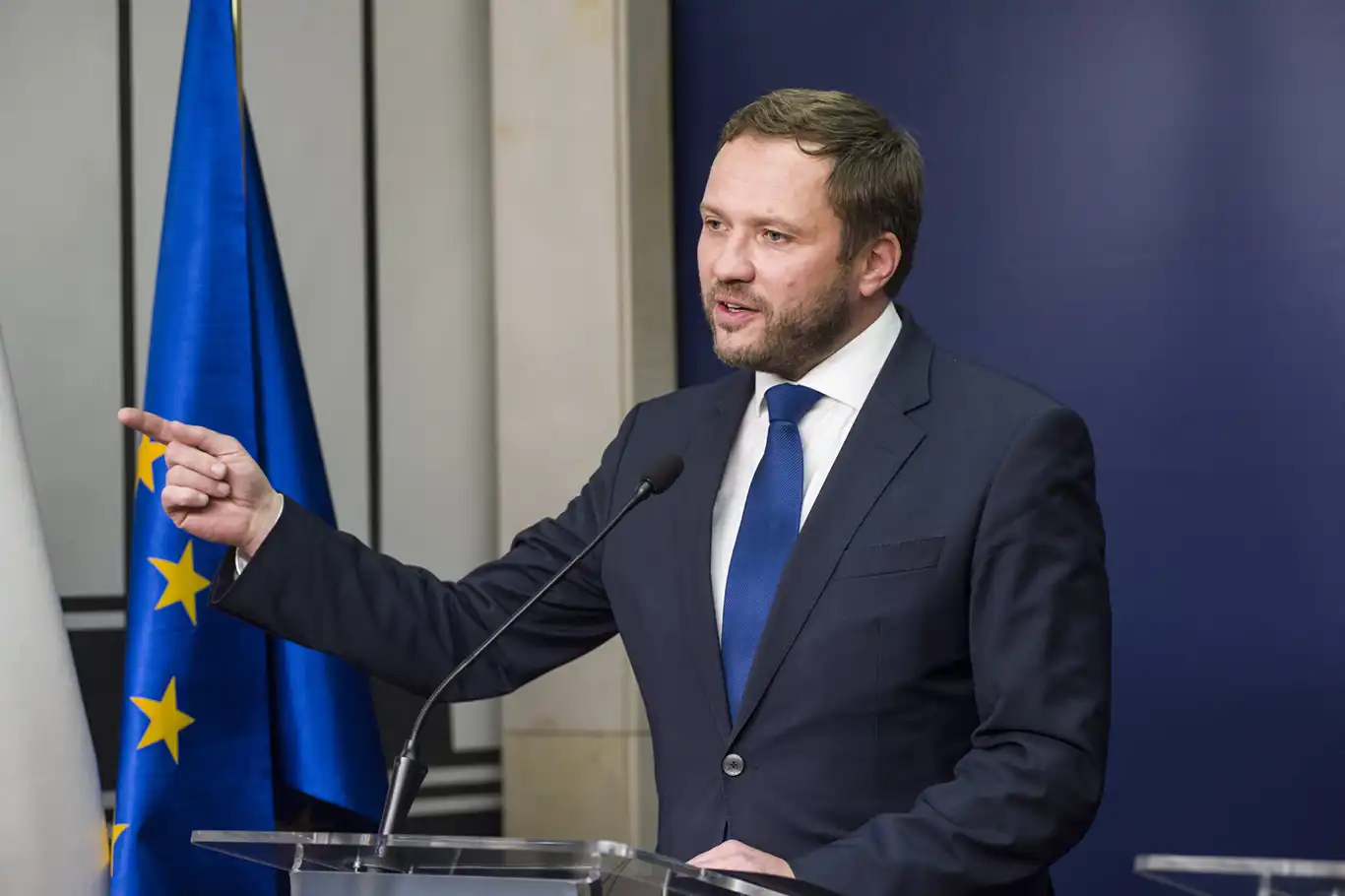Estonian FM calls for EU to revoke Hungary’s voting rights over pro-Russia stance


Estonian Foreign Minister Margus Tsahkna has urged the European Union (EU) to consider suspending Hungary’s voting rights within the bloc, citing the country’s persistent alignment with Russia as a breach of EU values and a threat to European security.
The proposal, which was made during a NATO foreign ministers’ meeting in Brussels, reflects escalating tensions within the EU over Hungary’s stance on Russia’s war in Ukraine and its resistance to collective EU policies.
Speaking to Der Spiegel, Tsahkna accused Hungary, under Prime Minister Viktor Orbán, of undermining European unity by aligning with Russian President Vladimir Putin rather than supporting EU interests. He stated, “With Hungary, we have a very weak country that is part of Putin’s team, not our European team.” Tsahkna emphasized that Hungary’s veto power over EU foreign and security policy decisions jeopardizes the bloc’s ability to act decisively, particularly as other member states seek consensus on critical issues.
Tsahkna referenced Article 7 of the Treaty on European Union, which provides a mechanism to suspend a member state’s voting rights if it consistently violates the EU’s foundational values and endangers European security. He argued that Hungary’s actions meet this threshold, asserting, “That’s exactly what Orbán is doing.” When pressed on whether Article 7 should now be invoked, Tsahkna responded, “We have such an opportunity, and I believe it is getting closer and closer.”
The call to penalize Hungary follows months of friction within the EU. On March 14, the Financial Times reported that EU officials had revived discussions about imposing sanctions on Hungary due to its pro-Russia policies, including its opposition to EU sanctions on Moscow and aid packages for Ukraine. Hungary’s resistance was further highlighted on March 8, when Orbán claimed the country had incurred €20 billion in economic losses over three years due to the Ukraine conflict. He cited this financial burden as justification for Hungary’s refusal to support the EU’s latest initiative to bolster weapons and financial aid to Kyiv.
If the EU were to pursue Tsahkna’s proposal, revoking Hungary’s voting rights would represent an unprecedented escalation in the bloc’s internal disciplinary measures. Such a move would require broad support among member states and could deepen divisions within the EU at a time when unity is seen as critical in responding to Russia’s actions in Ukraine. The suggestion underscores a growing rift between Hungary and other EU nations, particularly those in Eastern Europe like Estonia, which advocate for a harder line against Moscow.
Tsahkna’s remarks signal a potential turning point in EU-Hungary relations, as frustrations over Budapest’s policies reach a boiling point. Whether the EU will act on Article 7 remains uncertain, but the proposal highlights the challenges facing the bloc as it navigates geopolitical pressures and internal dissent. The situation is likely to dominate discussions in Brussels in the coming weeks as member states weigh the balance between enforcing unity and managing diversity within the union. (ILKHA)
LEGAL WARNING: All rights of the published news, photos and videos are reserved by İlke Haber Ajansı Basın Yayın San. Trade A.Ş. Under no circumstances can all or part of the news, photos and videos be used without a written contract or subscription.
A relentless wave of Israeli airstrikes has battered the Gaza Strip over the past 25 hours, leaving at least 58 Palestinians dead and 213 others injured, according to local medical sources.
Israeli settlers set fire to a Palestinian wedding hall and defaced its walls with racist graffiti in the occupied West Bank town of Bidya, west of Salfit, in the early hours of Tuesday morning.
Kanlaon Volcano, one of the Philippines’ most active volcanic sites, erupted early Tuesday morning, unleashing a towering plume of ash approximately 4,000 meters into the sky.
Iranian Foreign Minister Abbas Araghchi and U.S. Special Envoy for the Middle East Steve Witkoff are set to lead upcoming indirect negotiations between Tehran and Washington, scheduled to take place in Muscat, Oman on Saturday.